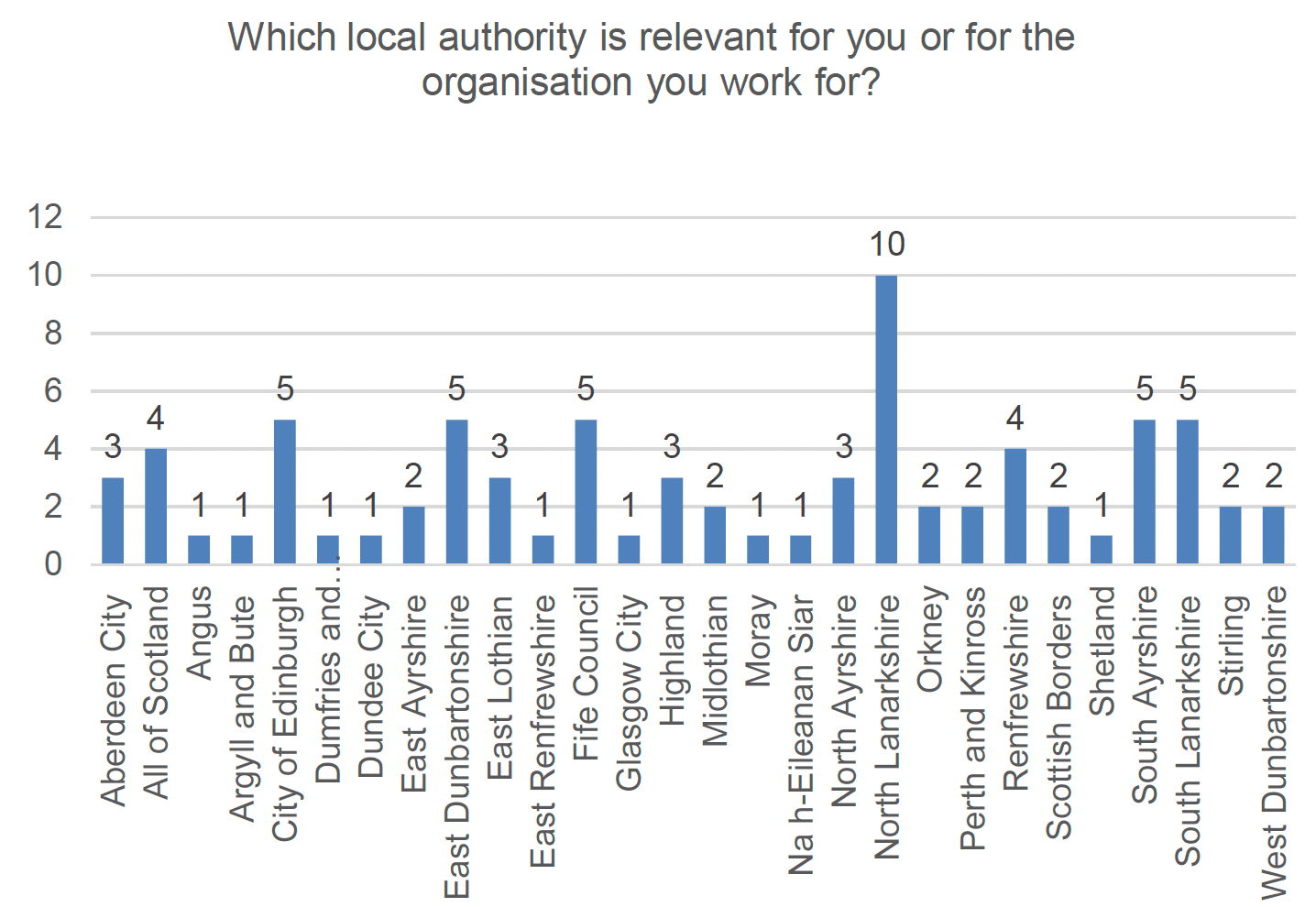Local Government (Scotland) Act 1973 - section 31 - disqualification criteria for councillors: consultation analysis
Analysis of our consultation on whether individuals subject to the sex offender notification requirements (SONR) under Part 2 of the Sexual Offences Act 2003 should be barred from holding the position of councillor in a local authority.
1. About this consultation
The Scottish Government undertook a consultation to understand views on proposals to update the disqualification criteria for local authority members. Specifically, the consultation sought views on whether individuals subject to the sex offender notification requirements (SONR) under Part 2 of the Sexual Offences Act 2003 should be barred from holding the position of councillor in a local authority. The consultation opened on the 17 May and closed on the 9 August 2023. The consultation included one closed question and two open follow-up questions. This report provides an analysis of the responses to the consultation.
Background
Local authority members (i.e. councillors) take strategic decisions that affect all of our lives. They decide how best to use taxpayers’ money and manage local authority resources, including property, land, and assets. They also have a leading role to play in building and preserving a society where the rights and freedoms of individuals are respected.
It is vital, therefore, that they have the trust of the communities they serve.
Existing legislation prevents individuals standing or holding office as a local authority member if they have – within five years prior to the day of the election, or since their election – been convicted in the UK, Channel Islands or Isle of Man of any offence and have received a custodial sentence, suspended or not, for a period not less than three months without the option of a fine.
At present, some individuals may be subject to SONR under Part 2 of the Sexual Offences Act 2003, more commonly known as being on the Sexual Offenders Register, but not receive a custodial sentence, meaning they do not fall within the scope of the existing legislation disqualifying persons from holding office.
Given that councillors frequently engage with a diverse range of people within their communities, often on a one-to-one basis, the Scottish Government is concerned that some individuals subject to SONR – but not excluded from standing or holding office on the basis of a custodial sentence – could potentially pose a risk to vulnerable individuals.
The Scottish Government considers that there should be consequences where the behavior of councillors, and those seeking to become councillors, falls short of that expected of anyone in a free, inclusive, and tolerant society and has led to enforcement action against an individual.
Purpose of the consultation
The consultation sought views on proposed changes to Section 31 of the Local Government (Scotland) Act 1973 (disqualification for nomination, election and holding office as member of local authority) to reflect changes to the criminal justice system that have been made since the Act was originally passed.
Specifically, the consultation sought views on whether individuals subject to the SONR under Part 2 of the Sexual Offences Act 2003 should be barred from holding the position of councillor in a local authority.
About the respondents
Respondents were asked to indicate whether they were responding on behalf of an organisation or as individuals. Individual respondents were asked which local authority area they lived in, while organisational respondents were asked about the geographical focus of the work of their organisation. Respondents were also asked whether they held the office of a councillor or were members of staff within a local authority.
Of the 81 responses, 18 (22%) said they represented organisations while 63 (78%) were from individuals.
The 18 organisational respondents provided information about the type of organisation they represented. Table 1 below summarises the types of organisations represented in the analysis. The percentages are expressed as a proportion of the 18 respondents providing organisational information. The majority of organisational responses represented local authorities.
| Type of public body | No. of respondents (%) |
|---|---|
| Local government | 15 (83%) |
| Police organization | 1 (5.5%) |
| Other public body | 1 (5.5%) |
| Other | 1 (5.5%) |
When asked whether they were a councillor or a local authority staff member, 22 of the respondents declared that they were members of staff within a Scottish council, while 15 of respondents said they were elected councillors within a Scottish local authority. Overall at least 46% of the responses were made by respondents with direct experience of working as a councillor or working within a council.
Individual respondents were asked which local authority they lived in, while organisational respondents were asked which local authority was relevant for the work of their organisation. Figure 1 below shows the geographical data for individual and organisational respondents combined. The local authority area with the highest number of respondents was North Lanarkshire Council. Overall, responses were received from respondents in 27 of Scotland’s 32 local authority areas.

Note: The data presented in Figure 1 combines individual responses to the question ‘Which local authority do you live in?’ with organisational responses to the question ‘What is the geographical focus of the work of your organisation?’.
Analysis approach
The consultation closed on the 9th of August 2023 and received 81 valid responses.
The responses were cleaned and then analysed by Scottish Government researchers using Microsoft Excel.
A thematic analysis of the open-ended responses was conducted in order to identify emerging themes within the responses to each question.
It is not possible to highlight every point that respondents submitted in the consultation analysis. This analysis reports on points where multiple respondents made comments that reflected a recurring theme or viewpoint. However, all responses to the consultation will be carefully considered by the Scottish Government.
Contact
There is a problem
Thanks for your feedback